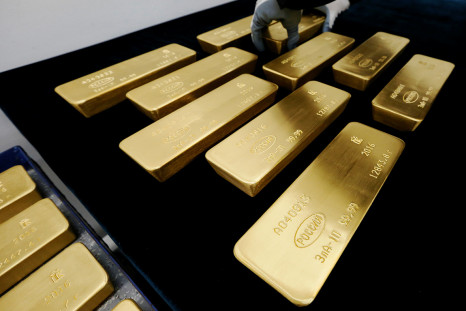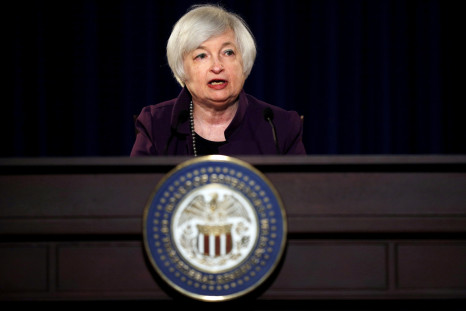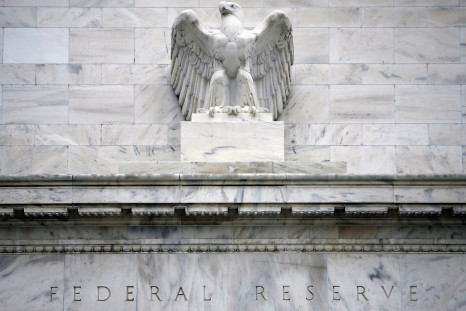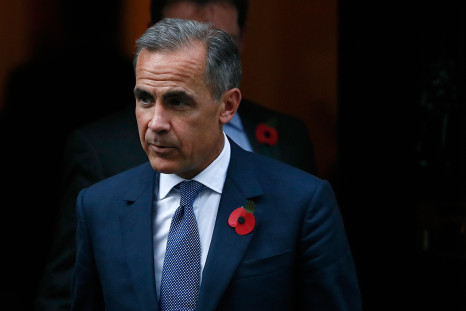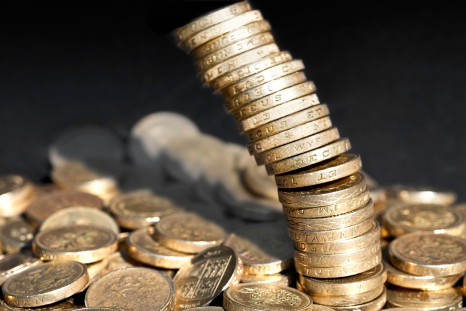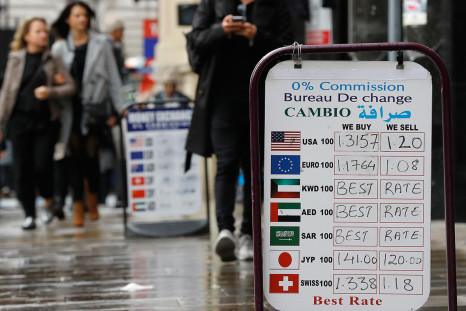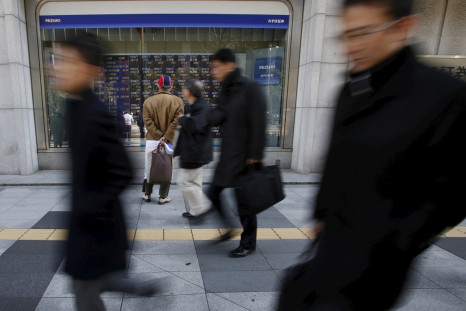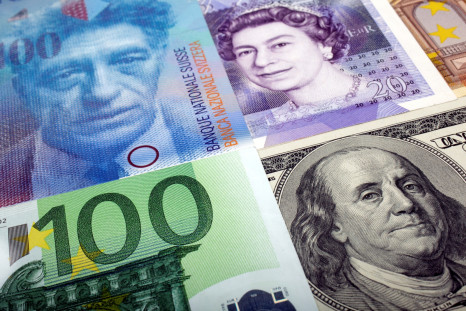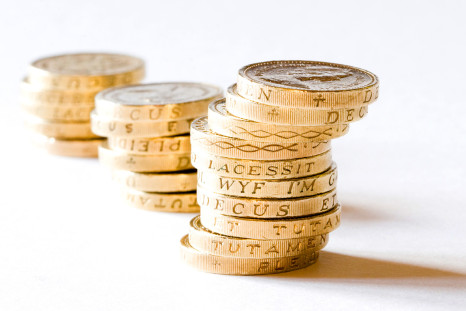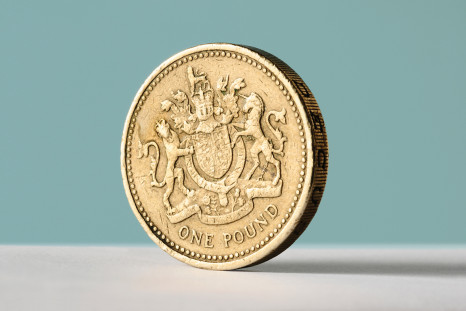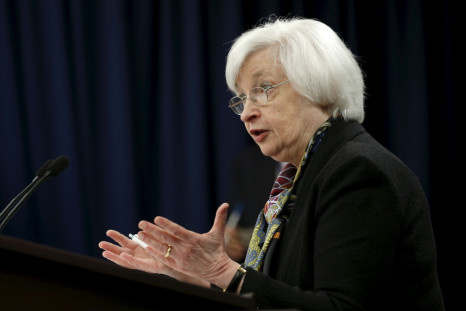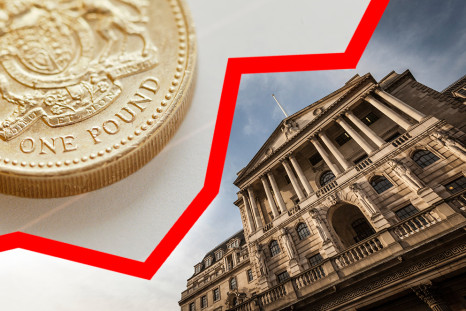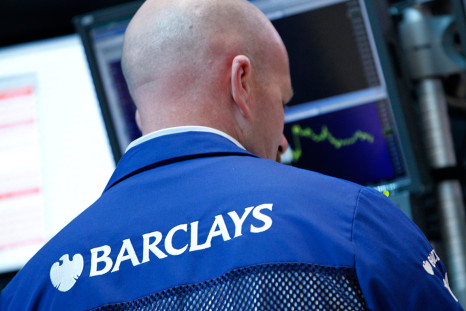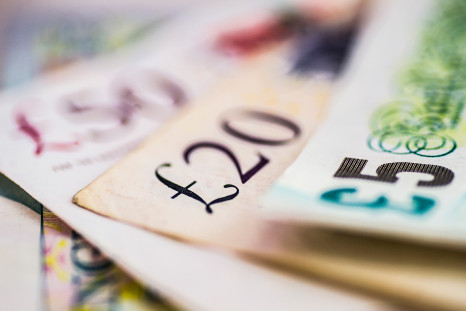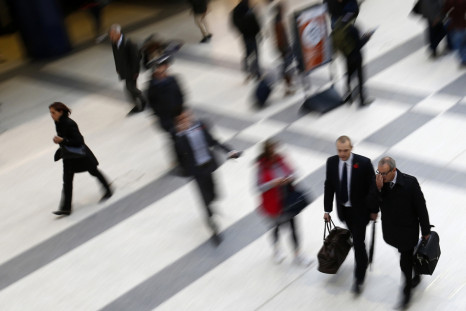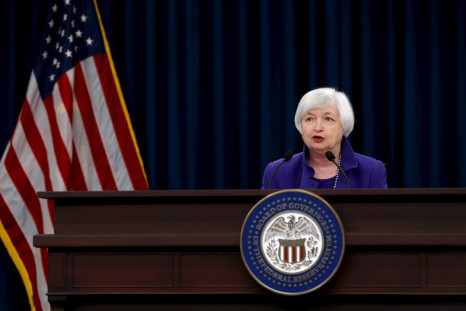Home
> Federal Reserve
Federal Reserve
FX Focus: Pound fails to halt slide despite better than expected PMI services data
Pound falls below €1.16, while dollar retreats against main rivals amid rising concerns over Donald Trump's presidency.
Dan Cancian Jan 05, 2017
Commodities round-up: Gold, oil futures recover after Fed influenced market kerfuffle subsides
Asian session started a marginal recovery in the commodities market which gathered momentum during European trading hours.
Gaurav Sharma Dec 16, 2016
FX Focus: Pound dips below €1.19 as investors await Federal Reserve rate hike
Dollar lower across the board ahead of Fed meeting, which is expected to confirm a first rate hike in 12 months.
Dan Cancian Dec 14, 2016
Five things to look out for as Federal Reserve prepares to hike rates
Fed set to raise rates as US markets and dollar have hit record-highs following Donald Trump's victory.
Dan Cancian Dec 13, 2016
US Federal Reserve: Industry understanding of fintech and blockchain 'still in its infancy'
The central bank analysed challenges to the 'development and adoption' of blockchain.
Jason Murdock Dec 06, 2016
FX Focus: Bank of England and Article 50 ruling drive pound to three-week high
Bank of England raises growth forecast for 2017 after High Court rules Parliament must vote on Article 50.
Dan Cancian Nov 03, 2016
FX Focus: Pound hits two-week high against the dollar
Dollar falls against major rivals ahead of Federal Reserve meeting and amid US elections jitters.
Dan Cancian Nov 02, 2016
Asian markets trade lower on US election jitters
Nikkei 225 index retreats 1.8% to 17,123.23 points at mid-day.
Karthick Arvinth Nov 02, 2016
FX Focus: Pound hits one-week low against euro after Northern Ireland Brexit ruling
After US GDP growth high, dollar rallies to put Federal Reserve on course to raise interest rates.
Dan Cancian Oct 28, 2016
FX Focus: Sterling falls amid rising worries EU will adopt hard stance on Brexit
Pound hits two-week high against euro before retreating, while dollar soars to six-year high against Chinese yuan.
Dan Cancian Oct 21, 2016
Asian markets mixed amid ECB policy change talk
Tokyo's Nikkei 225 benchmark advances 0.6% to 16,839.59 points.
Karthick Arvinth Oct 05, 2016
Asian shares rise despite Wall Street losses
Tokyo's Nikkei benchmark index advances 0.7% to 16,709.06 points.
Karthick Arvinth Oct 04, 2016
FX Focus: Pound on track to record worst week in more than a month
Dollar gains ground against the euro but uncertainty surrounding Federal Reserve meeting lingers on.
Dan Cancian Sep 16, 2016
FX Focus: Positive unemployment figures fail to boost pound against euro and dollar
Dollar gains steadily against the yen as US investors sit tight ahead of Federal Reserve meeting next week.
Dan Cancian Sep 14, 2016
FX Focus: Pound tumbles against euro and dollar as inflation misses forecast
Dollar's rally stalls after dovish comment from Fed Governor Lael Brainard, before recovering ground.
Dan Cancian Sep 13, 2016
FX Focus: Pound gains against euro and dollar as investors fret over Fed's rate hike
Dollar trades mixed amid increasing fears the Fed will hike interest rates this month.
Dan Cancian Sep 12, 2016
FX Focus: Dollar slides after US non-farm payrolls report falls short of expectations
Sterling remains on track to clinch weekly gains as business confidence increases.
Dan Cancian Sep 02, 2016
FX Focus: Pound gains ground against the euro despite decline in mortgage approvals
Dollar remains on the front foot after Federal Reserve hints at short-term interest rates hike.
Dan Cancian Aug 30, 2016
Fed fines former Barclays FX trader $1.2m and bans him for life
Christopher Ashton was suspended by Barclays in November 2013 before being fired last year.
Dan Cancian Aug 30, 2016
FX Focus: Pound climbs against euro and dollar after GDP boost
Dollar slips against euro and yen ahead of Janet Yellen's much-anticipated speech at Jackson Hole meeting.
Dan Cancian Aug 26, 2016
FX Focus: Pound on track to post weekly gains against euro and dollar despite slight decline
Dollar slips back against euro but holds steady against yen as Jackson Hole meeting begins.
Dan Cancian Aug 25, 2016
FX Focus: Pound hits two-week high against the euro despite poor mortgage data
Dollar gains against euro ahead of Janet Yellen's speech at Jackson Hole symposium on 26 August.
Dan Cancian Aug 24, 2016
FX Focus: Pound breaks above $1.32 for first time since BoE rate cut
Dollar retreats against euro and yen ahead of Federal Reserve chairwoman Janet Yellen's speech on Friday.
Dan Cancian Aug 23, 2016
FX Focus: Pound posts small gains against euro and dollar
Dollar gains ground against yen as investors await Friday's speech from Federal Reserve chair Janet Yellen.
Dan Cancian Aug 22, 2016
FX Focus: Sterling drops after public borrowing figures fall short of forecast
Dollar gains against most currencies, despite more mixed messages from Federal Reserve officials.
Dan Cancian Aug 19, 2016
FX Focus: Pound hits two-week high after retail sales shrug off Brexit concerns
Dollar edges lower after Federal Reserve minutes show US policymakers remain divided over timing of next rate hike.
Dan Cancian Aug 18, 2016
FX Focus: Pound falls again as boost from strong unemployment figures peters out
Dollar gains ground against yen as investors await release of minutes from latest Fed meeting.
Dan Cancian Aug 17, 2016
FX Focus: Pound heads for third consecutive month of decline ahead of BoE's decision
Yen rallies over 2.5% against the dollar as Bank of Japan disappoints investors.
Dan Cancian Jul 29, 2016
FX Focus: Pound falls against euro and dollar despite positive GDP data
Federal Reserve unlikely to raise interest rates later today, as dollar rallies against yen.
Dan Cancian Jul 27, 2016
Brexit will not affect US growth, IMF says
Washington-based lender keeps its US GDP growth forecast unchanged at 2.2% for this year.
Karthick Arvinth Jul 13, 2016
Pages
- PREV
- 1
- 2
- 3
- 4
- 5
- 6
- 7
- 8
- 9
- NEXT



